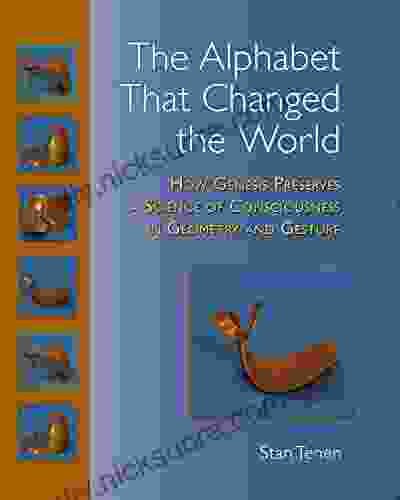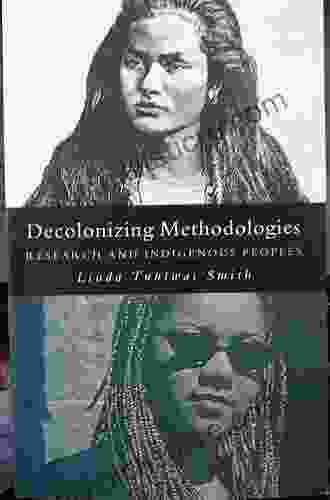Decolonizing Research Methodologies: Empowering Indigenous Peoples and Ensuring Equitable Knowledge Production

body { font-family: Arial, Helvetica, sans-serif; font-size: 14px; line-height: 1.5; color: #333; }
h1, h2 { font-weight: bold; }
4.7 out of 5
| Language | : | English |
| File size | : | 2201 KB |
| Text-to-Speech | : | Enabled |
| Screen Reader | : | Supported |
| Enhanced typesetting | : | Enabled |
| Word Wise | : | Enabled |
| Print length | : | 376 pages |
h1 { font-size: 24px; }
h2 { font-size: 18px; }
p { margin-bottom: 12px; }
.container { max-width: 800px; margin: 0 auto; }
.callout { background-color: #f5f5f5; padding: 12px; margin-bottom: 12px; }
.highlight { background-color: #f5f5f5; padding: 6px; margin-bottom: 12px; }
Research involving Indigenous peoples has a long history of being dominated by colonial influences, leading to power imbalances and the marginalization of Indigenous voices. Decolonizing research methodologies aim to address this legacy by prioritizing Indigenous perspectives, values, and ways of knowing.
This article explores the importance of decolonizing research methodologies in the context of research involving Indigenous peoples. It discusses the historical and ongoing colonial influences that have shaped research practices, resulting in power imbalances and the marginalization of Indigenous voices. The article emphasizes the need for research approaches that prioritize Indigenous perspectives, values, and ways of knowing, ensuring equitable knowledge production and empowering Indigenous communities.
Historical and Ongoing Colonial Influences on Research
The history of research involving Indigenous peoples is marked by colonial influences. These influences have shaped the ways in which research is conducted, the questions that are asked, and the ways in which knowledge is produced and disseminated.
One of the most significant colonial influences on research is the power imbalance between researchers and Indigenous peoples. This power imbalance is rooted in the historical and ongoing colonization of Indigenous lands and peoples. It has resulted in a situation where researchers often hold the power to define the terms of research, set the research agenda, and control the dissemination of research findings.
Another colonial influence on research is the marginalization of Indigenous voices. This marginalization is often the result of the ways in which research is conducted. For example, researchers may not involve Indigenous peoples in the design and implementation of research projects. They may also fail to acknowledge the unique perspectives and experiences of Indigenous peoples in their research findings.
Example of Colonial Influence on Research
A study on the health of Indigenous peoples in Canada was conducted without the involvement of Indigenous researchers or community members. The study's findings were used to justify government policies that were harmful to Indigenous peoples.
The Importance of Decolonizing Research Methodologies
Decolonizing research methodologies are essential for addressing the historical and ongoing colonial influences on research. Decolonizing methodologies prioritize Indigenous perspectives, values, and ways of knowing. They also seek to empower Indigenous peoples in the research process.
There are many benefits to decolonizing research methodologies. These benefits include:
- Increased relevance and accuracy of research findings: Decolonizing methodologies ensure that research is relevant to the needs and priorities of Indigenous peoples. They also help to ensure that research findings are accurate and reflect the experiences of Indigenous peoples.
- Increased empowerment of Indigenous peoples: Decolonizing methodologies empower Indigenous peoples by giving them control over the research process. This includes the ability to define the research agenda, set the terms of research, and control the dissemination of research findings.
- Increased equity in research: Decolonizing methodologies promote equity in research by leveling the playing field between researchers and Indigenous peoples. They help to ensure that Indigenous peoples have a meaningful voice in the research process and that their perspectives are valued.
Principles of Decolonizing Research Methodologies
- Prioritize Indigenous perspectives, values, and ways of knowing
- Empower Indigenous peoples in the research process
- Be reflexive and critical of the researcher's own positionality
- Build relationships of trust and reciprocity with Indigenous communities
- Disseminate research findings in a way that is accessible to and benefits Indigenous communities
Examples of Decolonizing Research Methodologies
There are many different ways to decolonize research methodologies. Some examples include:
- Participatory research: Participatory research involves Indigenous peoples in all aspects of the research process, from the design and implementation of the research to the dissemination of research findings.
- Collaborative research: Collaborative research is a partnership between researchers and Indigenous peoples. Researchers and Indigenous peoples work together to define the research agenda, set the terms of research, and control the dissemination of research findings.
- Community-based research: Community-based research is conducted in partnership with Indigenous communities. The research agenda is set by the community, and the research is conducted in a way that is respectful of the community's values and traditions.
Example of a Decolonizing Research Methodology
A study on the impacts of climate change on Indigenous communities in Alaska was conducted in partnership with Indigenous communities. The research team worked with community members to develop the research agenda and design the research project. The research findings were used to develop adaptation strategies that were tailored to the needs of the communities.
Decolonizing research methodologies are essential for ensuring equitable knowledge production and empowering Indigenous peoples. By prioritizing Indigenous perspectives, values, and ways of knowing, decolonizing methodologies can help to address the historical and ongoing colonial influences on research. This can lead to more relevant and accurate research findings, increased empowerment of Indigenous peoples, and increased equity in research.
As researchers, we have a responsibility to decolonize our research methodologies. By ng so, we can help to create a more just and equitable world for Indigenous peoples.
4.7 out of 5
| Language | : | English |
| File size | : | 2201 KB |
| Text-to-Speech | : | Enabled |
| Screen Reader | : | Supported |
| Enhanced typesetting | : | Enabled |
| Word Wise | : | Enabled |
| Print length | : | 376 pages |
Do you want to contribute by writing guest posts on this blog?
Please contact us and send us a resume of previous articles that you have written.
 Fiction
Fiction Non Fiction
Non Fiction Romance
Romance Mystery
Mystery Thriller
Thriller SciFi
SciFi Fantasy
Fantasy Horror
Horror Biography
Biography Selfhelp
Selfhelp Business
Business History
History Classics
Classics Poetry
Poetry Childrens
Childrens Young Adult
Young Adult Educational
Educational Cooking
Cooking Travel
Travel Lifestyle
Lifestyle Spirituality
Spirituality Health
Health Fitness
Fitness Technology
Technology Science
Science Arts
Arts Crafts
Crafts DIY
DIY Gardening
Gardening Petcare
Petcare Virginia Willis
Virginia Willis Chris Diamond
Chris Diamond Susan Cooper
Susan Cooper Leigh Newman
Leigh Newman Roy Richard Grinker
Roy Richard Grinker Dan Limbaugh
Dan Limbaugh Day Leitao
Day Leitao William Scott Wilson
William Scott Wilson Eric Blehm
Eric Blehm Meghan Leahy
Meghan Leahy Patrick Meechan
Patrick Meechan Rebecca A Moyes
Rebecca A Moyes Anne Deans
Anne Deans Todd Downs
Todd Downs Anna Goldsworthy
Anna Goldsworthy Dr Howard Rankin
Dr Howard Rankin Matt Brown
Matt Brown Emily Evans
Emily Evans William Bauer
William Bauer John Mordechai Gottman
John Mordechai Gottman Blair Holden
Blair Holden Bryan Berg
Bryan Berg Sky Marsen
Sky Marsen Susan Striker
Susan Striker Lillian Tibbles Phd
Lillian Tibbles Phd Shenyang Guo
Shenyang Guo Francis Fukuyama
Francis Fukuyama Lucy Christopher
Lucy Christopher Tim Flanagan
Tim Flanagan Lyla Lee
Lyla Lee Joel David Hamkins
Joel David Hamkins Kenay Keira
Kenay Keira Bill Jones
Bill Jones Elisabeth Fassas
Elisabeth Fassas Amos Yong
Amos Yong Tripp Bowden
Tripp Bowden Aaron Kleinmeyer
Aaron Kleinmeyer David J Vanbergen Jr
David J Vanbergen Jr Sandra Swenson
Sandra Swenson Leandro Taub
Leandro Taub George Francis Dow
George Francis Dow A R Vasishtha
A R Vasishtha Mike Tidwell
Mike Tidwell Peter Goldenthal
Peter Goldenthal Scientia Media Group
Scientia Media Group Lauren Muhlheim
Lauren Muhlheim Todd Wanerman
Todd Wanerman Kenneth Cloke
Kenneth Cloke Peter Nichols
Peter Nichols Dirk F Moore
Dirk F Moore R A Mejia
R A Mejia Alyssa Padgett
Alyssa Padgett Sandra Niche
Sandra Niche Peter Shelton
Peter Shelton Giordano Scalzo
Giordano Scalzo Bruce Tremper
Bruce Tremper David H Barlow
David H Barlow Lilin Yang
Lilin Yang Chris I Naylor
Chris I Naylor Brian Clegg
Brian Clegg Lyndall Clipstone
Lyndall Clipstone Eileen Tracy
Eileen Tracy Jonathan S Rose
Jonathan S Rose E S Wynn
E S Wynn Andrea Falk
Andrea Falk Tammara Webber
Tammara Webber Heather Anderson
Heather Anderson Homeira Qaderi
Homeira Qaderi Certsquad Professional Trainers
Certsquad Professional Trainers Peter Godfrey Smith
Peter Godfrey Smith Katerina Griffith
Katerina Griffith Jack Grimshaw
Jack Grimshaw Shelly Mazzanoble
Shelly Mazzanoble Ilya Ru
Ilya Ru Thomas R Martin
Thomas R Martin Daniel S Pierce
Daniel S Pierce Sean Skahan
Sean Skahan John Long
John Long Michael Lanza
Michael Lanza Jm Mason
Jm Mason Tom Jordan
Tom Jordan Diane Stresing
Diane Stresing Ridge Magee
Ridge Magee Bear Heart
Bear Heart Dale Dougherty
Dale Dougherty Stan Skinner
Stan Skinner Josh Skeen
Josh Skeen A L Graziadei
A L Graziadei Alf Wilkinson
Alf Wilkinson Lindsey Vonn
Lindsey Vonn Soap2day Publication
Soap2day Publication Rebecca Black
Rebecca Black Scott A Ostrow
Scott A Ostrow A L Knorr
A L Knorr Anthony J Onwuegbuzie
Anthony J Onwuegbuzie Thomas Mcguane
Thomas Mcguane Matthew J Friedman
Matthew J Friedman Dave Lowry
Dave Lowry Michael Shingleton
Michael Shingleton Mitch Landrieu
Mitch Landrieu Anghel Leonard
Anghel Leonard A M Strickland
A M Strickland Marlynn Jayme Schotland
Marlynn Jayme Schotland Cynthia Ulrich Tobias
Cynthia Ulrich Tobias Todd Gitlin
Todd Gitlin A J Hamler
A J Hamler Diane Burke Fessler
Diane Burke Fessler Judi Garman
Judi Garman Marcus Butler
Marcus Butler Rafe Esquith
Rafe Esquith Raymond J Carroll
Raymond J Carroll Kevin Adams
Kevin Adams Dean R Johnson
Dean R Johnson Susanne Foitzik
Susanne Foitzik Yasu
Yasu Cyndi Kinney
Cyndi Kinney Marks Prep
Marks Prep Dane Huckelbridge
Dane Huckelbridge Winston Starr
Winston Starr Din Daniels
Din Daniels A K Davidson
A K Davidson Catherine Stonehouse
Catherine Stonehouse The R A
The R A Eva Mauer
Eva Mauer Pete Ripmaster
Pete Ripmaster Hazel Holmes
Hazel Holmes Shauna Lynn Panczyszyn
Shauna Lynn Panczyszyn Cristian Salcescu
Cristian Salcescu Dr Alan Whitcomb
Dr Alan Whitcomb Kathlyn Gay
Kathlyn Gay Dr Tricia Groff
Dr Tricia Groff Alex Karp
Alex Karp Iasha King
Iasha King Ken Castor
Ken Castor Lindsey Lapointe
Lindsey Lapointe A F Stewart
A F Stewart Alexander Greenmaj
Alexander Greenmaj Rosie Garthwaite
Rosie Garthwaite A J Angulo
A J Angulo Dr Kevin Leman
Dr Kevin Leman Jennifer N Smith
Jennifer N Smith Mark Ryan
Mark Ryan A J Mackinnon
A J Mackinnon Harry Yoon
Harry Yoon Fernanda Pirie
Fernanda Pirie Kathy Koch
Kathy Koch Stephen R Lawhead
Stephen R Lawhead Polly Moore
Polly Moore Rens Bod
Rens Bod Joshua Akin
Joshua Akin Bruce Collier
Bruce Collier Pintip Dunn
Pintip Dunn Olivia Smith
Olivia Smith Helen E Johnson
Helen E Johnson Cathy A Malchiodi
Cathy A Malchiodi Helen Marot
Helen Marot Mrjamvad
Mrjamvad Adam Savage
Adam Savage William Minto
William Minto Francis Pryor
Francis Pryor Randy Friedman
Randy Friedman Oba Ilari Aladokun
Oba Ilari Aladokun Mia Kankimaki
Mia Kankimaki Eugene Don
Eugene Don Sadie Robertson Huff
Sadie Robertson Huff Sonya Chappell
Sonya Chappell Steve Hindman
Steve Hindman Frost Kay
Frost Kay Dale P Clemens
Dale P Clemens Zander Brumbaugh
Zander Brumbaugh King Solomon
King Solomon Dmv Test Bank
Dmv Test Bank Jan Morris
Jan Morris Barry Werth
Barry Werth Lisa Murphy
Lisa Murphy Chelsea Crockett
Chelsea Crockett John Almberg
John AlmbergA G
 Timothy J Gawne
Timothy J Gawne A J Carlisle
A J Carlisle Dan Romanchik Kb6nu
Dan Romanchik Kb6nu Ed Webster
Ed Webster A H Almaas
A H Almaas Jamal Moustafaev
Jamal Moustafaev Joe Pepitone
Joe Pepitone Rachael Allen
Rachael Allen Michael Labossiere
Michael Labossiere Christine Wheeler
Christine Wheeler Val Mcdermid
Val Mcdermid Ken Alder
Ken Alder Mike Branon
Mike Branon Charles Butler
Charles Butler Kenn Bivins
Kenn Bivins Valerio Varesi
Valerio Varesi Joe Navarro
Joe Navarro Anji Andrews
Anji Andrews Brad K Chambers
Brad K Chambers Sarah Jo Brown
Sarah Jo Brown Mark Obmascik
Mark Obmascik Todd Rose
Todd Rose Matilda Ramsay
Matilda Ramsay Larit Levy
Larit Levy A J Messenger
A J Messenger Mj Porter
Mj Porter N J Enfield
N J Enfield Peter Maas
Peter Maas Flo Perry
Flo Perry Sherrilyn Kenyon
Sherrilyn Kenyon Thomas Hager
Thomas Hager Arlin Smith
Arlin Smith A G Cairns Smith
A G Cairns Smith Helen Fitzgerald
Helen Fitzgerald Armin A Brott
Armin A Brott David A Wells
David A Wells Akash Kapur
Akash Kapur James Baldwin
James Baldwin Steven Raichlen
Steven Raichlen Saxton Pope
Saxton Pope Zen Faulkes
Zen Faulkes David G Taylor
David G Taylor Russell Sher
Russell Sher Louis Jacques Dorais
Louis Jacques Dorais Tiara R Brown
Tiara R Brown Jennifer Longmore
Jennifer Longmore Jane Austen
Jane Austen Michael Lardon
Michael Lardon Michael Dell
Michael Dell Nick Jackson
Nick Jackson Cassandra Clare
Cassandra Clare Raymond M Smullyan
Raymond M Smullyan Walter Dean Myers
Walter Dean Myers Lauren Oliver
Lauren Oliver Philip Yarrow
Philip Yarrow Ari Tuckman
Ari Tuckman Peter Rees
Peter Rees Taha Sochi
Taha Sochi Ray Bradbury
Ray Bradbury Gemma Milne
Gemma Milne Charles Edward Chapel
Charles Edward Chapel Crystal Cestari
Crystal Cestari Seth M Holmes
Seth M Holmes Gordon Macquarrie
Gordon Macquarrie Calvin L Chou
Calvin L Chou Sergey Kosarevsky
Sergey Kosarevsky Tony Wright
Tony Wright W Timothy Gallwey
W Timothy Gallwey Thomas C Tabor
Thomas C Tabor Rina Kent
Rina Kent Abigail Burd Lcsw Pmh C
Abigail Burd Lcsw Pmh C Richard Heath
Richard Heath Susan Aud Sonders
Susan Aud Sonders Christiane Kutik
Christiane Kutik Caspar Craven
Caspar Craven Adrian Dater
Adrian Dater Ryan Gray
Ryan Gray Amanda Ostrander
Amanda Ostrander Sam Warburton
Sam Warburton Manoush Zomorodi
Manoush Zomorodi Sarah Sutton
Sarah Sutton Vernon Trafford
Vernon Trafford John D Currid
John D Currid Shanterra Mcbride
Shanterra Mcbride Helen Buckley
Helen Buckley Jennifer Senior
Jennifer Senior Rekha Ramcharan
Rekha Ramcharan Businessnews Publishing
Businessnews Publishing Sharie King
Sharie King Jim Allen
Jim Allen Paul Mccarthy
Paul Mccarthy Leslie Stager
Leslie Stager Jec Aristotle Ballou
Jec Aristotle Ballou Glenn Patron
Glenn Patron A J Stewart
A J Stewart Jennifer L Armentrout
Jennifer L Armentrout A J Mackenzie
A J Mackenzie Zen Lylah
Zen Lylah Andreas Quast
Andreas Quast Raymonde Carroll
Raymonde Carroll Barbara J Bain
Barbara J Bain Jon Gillespie Brown
Jon Gillespie Brown Jose M Forero Bautista
Jose M Forero Bautista Upton Sinclair
Upton Sinclair Eric Sevareid
Eric Sevareid Chuck Whelon
Chuck Whelon Lou Zambello
Lou Zambello Kelly Starrett
Kelly Starrett Andrew Henderson
Andrew Henderson Matthieu Ricard
Matthieu Ricard Niall Ferguson
Niall Ferguson Lilith Mclelland
Lilith Mclelland Roger Zelazny
Roger Zelazny Dawn Huebner
Dawn Huebner Alison Cotter
Alison Cotter Rysa Walker
Rysa Walker Michael D Coogan
Michael D Coogan Georgia Varozza
Georgia Varozza Jim Vernes
Jim Vernes Bob Trueman
Bob Trueman William Ramsey
William Ramsey Steve Angers
Steve Angers Lou Tabory
Lou Tabory Watt Key
Watt Key Katrina Abbott
Katrina Abbott Cailin O Connor
Cailin O Connor Monte Burke
Monte Burke Michelle Maccarthy
Michelle Maccarthy Ken Dryden
Ken Dryden Jonalu Johnstone
Jonalu Johnstone Karl Knopf
Karl Knopf Megan Vickers
Megan Vickers Max Tegmark
Max Tegmark David Spiegelhalter
David Spiegelhalter Eric Armstrong
Eric Armstrong Jennie Finch
Jennie Finch Garret Romaine
Garret Romaine Byron Pitts
Byron Pitts Carrie Harper
Carrie Harper Okina Baba
Okina Baba Natalie Pompilio
Natalie Pompilio Corina Morariu
Corina Morariu Micha Gorelick
Micha Gorelick Sherine Hamdy
Sherine Hamdy Ray Ordorica
Ray Ordorica John Williams
John Williams Nancy Mckenzie
Nancy Mckenzie John L Messina
John L Messina Tsao Lin E Moy L Ac Msom
Tsao Lin E Moy L Ac Msom Timothy C Urdan
Timothy C Urdan Erin Watt
Erin Watt Robert P Harris
Robert P Harris Christopher Small
Christopher Small Dame Darcy
Dame Darcy Bob Plager
Bob Plager Roxanne Martin
Roxanne Martin Kenneth Cline
Kenneth Cline John L Parker Jr
John L Parker Jr Don Fink
Don Fink Jeff Kane
Jeff Kane Anne Sigismund Huff
Anne Sigismund Huff Stan Tenen
Stan Tenen Jonathan Mckee
Jonathan Mckee Peter Zheutlin
Peter Zheutlin Boston T Party
Boston T Party Pardha S Pyla
Pardha S Pyla Tanya Selvaratnam
Tanya Selvaratnam William Monk
William Monk Toni Natalie
Toni Natalie Bruce Lansky
Bruce Lansky Grady Hendrix
Grady Hendrix Dr Stephanie Bloodworth Psyd
Dr Stephanie Bloodworth Psyd Val Emmich
Val Emmich David Magee
David Magee Karla Helbert
Karla Helbert Gary Gruber
Gary Gruber Rick Telander
Rick Telander Kerri Hummingbird Sami
Kerri Hummingbird Sami Jonathan Eig
Jonathan Eig Philip Golding
Philip Golding Lisa Pease
Lisa Pease John Brenkus
John Brenkus John Halligan
John Halligan Nicole Conway
Nicole Conway Noah Gift
Noah Gift Cath Smith
Cath Smith Charles Szypszak
Charles Szypszak Jean Philippe Dionne
Jean Philippe Dionne Marc S Sabatine
Marc S Sabatine Vitaly Pedchenko
Vitaly Pedchenko Gabrielle Coleman
Gabrielle Coleman A Roger Ekirch
A Roger Ekirch Hicham And Mohamed Ibnalkadi
Hicham And Mohamed Ibnalkadi Bob Frye
Bob Frye Loretta Sponsler
Loretta Sponsler David Deutsch
David Deutsch A G Howard
A G Howard Heather Gudenkauf
Heather Gudenkauf Len Fisher
Len Fisher Russell Davis
Russell Davis Freya Hoffmeister
Freya Hoffmeister K A Riley
K A Riley Angela Himsel
Angela Himsel Filippo Coarelli
Filippo Coarelli Mandy Rivers
Mandy Rivers Catherine Rodgers
Catherine Rodgers Rebecca Pelky
Rebecca Pelky Joseph Mctaggart
Joseph Mctaggart Jamie Vardy
Jamie Vardy Linh Phung
Linh Phung Harrison Fluss
Harrison Fluss William F Mann
William F Mann William C Oakes
William C Oakes Laura Pohl
Laura Pohl A M Wilson
A M Wilson Remy Agee
Remy Agee Paul Watzlawick
Paul Watzlawick David Remnick
David Remnick Bree Moore
Bree Moore Linda Tuhiwai Smith
Linda Tuhiwai Smith Jennifer Trainer Thompson
Jennifer Trainer Thompson Jordan B Peterson
Jordan B Peterson
Light bulbAdvertise smarter! Our strategic ad space ensures maximum exposure. Reserve your spot today!

 Miguel de CervantesEmbark on the Quest for World-Class Excellence in Every Aspect of Your Life...
Miguel de CervantesEmbark on the Quest for World-Class Excellence in Every Aspect of Your Life...
 Henry GreenHarnessing the Utility of Vehicles When the World Collapses: A Comprehensive...
Henry GreenHarnessing the Utility of Vehicles When the World Collapses: A Comprehensive... Connor MitchellFollow ·6.5k
Connor MitchellFollow ·6.5k Cooper BellFollow ·19.7k
Cooper BellFollow ·19.7k George Bernard ShawFollow ·7k
George Bernard ShawFollow ·7k Clark BellFollow ·11k
Clark BellFollow ·11k Roberto BolañoFollow ·2.3k
Roberto BolañoFollow ·2.3k Clarence BrooksFollow ·5.8k
Clarence BrooksFollow ·5.8k Ian MitchellFollow ·12.3k
Ian MitchellFollow ·12.3k Ervin BellFollow ·17.3k
Ervin BellFollow ·17.3k

 Franklin Bell
Franklin BellHow Genesis Preserves Science Of Consciousness In...
The book of Genesis is...

 Ted Simmons
Ted SimmonsAt Day's Close, Night in Times Past
As the sun dips...

 Kenneth Parker
Kenneth ParkerRose Under Fire: Code Name Verity - A Heartbreaking and...
In the annals of...

 Jerry Hayes
Jerry HayesNurturing Massage for Pregnancy: A Comprehensive Guide to...
Pregnancy is...

 Blake Bell
Blake BellFill in the Blank: Word Kind of Animal Farm for Kids and...
This interactive fill-in-the-blank...
4.7 out of 5
| Language | : | English |
| File size | : | 2201 KB |
| Text-to-Speech | : | Enabled |
| Screen Reader | : | Supported |
| Enhanced typesetting | : | Enabled |
| Word Wise | : | Enabled |
| Print length | : | 376 pages |










